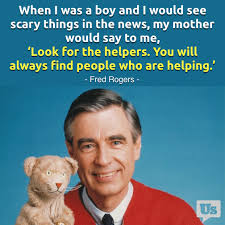When You Don’t Know How To Help
31/03
Sometimes we want to help but don’t know how. I have felt that. The Covid situation has more of us wanting to help, while not knowing how.

The Five Love Languages (Chapman) offers the premise that we each have a preference for how we express love. More than a preference, we have a way of expressing love that is most natural for us and that may not be the same way for others. Love is helping. When I am reminded that you love me I feel better, my immune system is bolstered. I feel more able to deal with the world. Love is helpful.
My premise is that, when feeling a bit helpless, I simply need to engage my preferred love language and extend that form of love.
- Physical touch – actual contact, however light. More often is better. A phone call is way better than an email, but email is way better than silence
- Words of affirmation – sincerely speaking positively about another, beyond simple compliment. Genuineness is everything
- Thoughtful gifts – something is given, size or cost is immaterial. Make the effort to demonstrate that you ‘see’ them
- Acts of service – acts for the receiver. Size absolutely does not matter
- Quality time – one with one, just you two. This need not be in person. It is an act that is dedicated to the receiver, just them
These expressions of love can, of course, be used at any time. Let’s look at use of the five love languages in the midst of a world pandemic. (yes, I know pandemic means worldwide, but I just want to reinforce that) I see hints of helplessness all around these days. People are slowly sliding into a funk, a miasma of helplessness. We could all use some help.
What help can I/you provide?
If feeling stuck, notice which love language is probably or mostly, yours. Notice how you just do that, not a huge effort needed. That expression of love is your natural self speaking. As Louis Armstrong sings, ‘I see people shaking hands, saying ‘how do you do’, they’re just saying, ‘I love you’. Now take a moment to notice how you feel when someone acts toward you using your love language the one that is probably or mostly yours. Notice how it feels compared to when you receive the other kinds.
Want to encourage someone? Send them some of the love you feel for them using your own love language. They might recognize that is you being you and loving them. Co-workers are not as likely to recognize what you are saying as well as people who know you better, like at home. Yet, when sincerely offered, any person feels the gift you are giving. Want to amp it up, really let them know? Review how they give love. Think about them. How do they act? What is a candidate for their love language? As best as you can, can’t do it wrong if you are sincere, offer in their language. They will ‘get it’. Sincerity is the key.
Now you know how to help.
Joseph Seiler MCC

